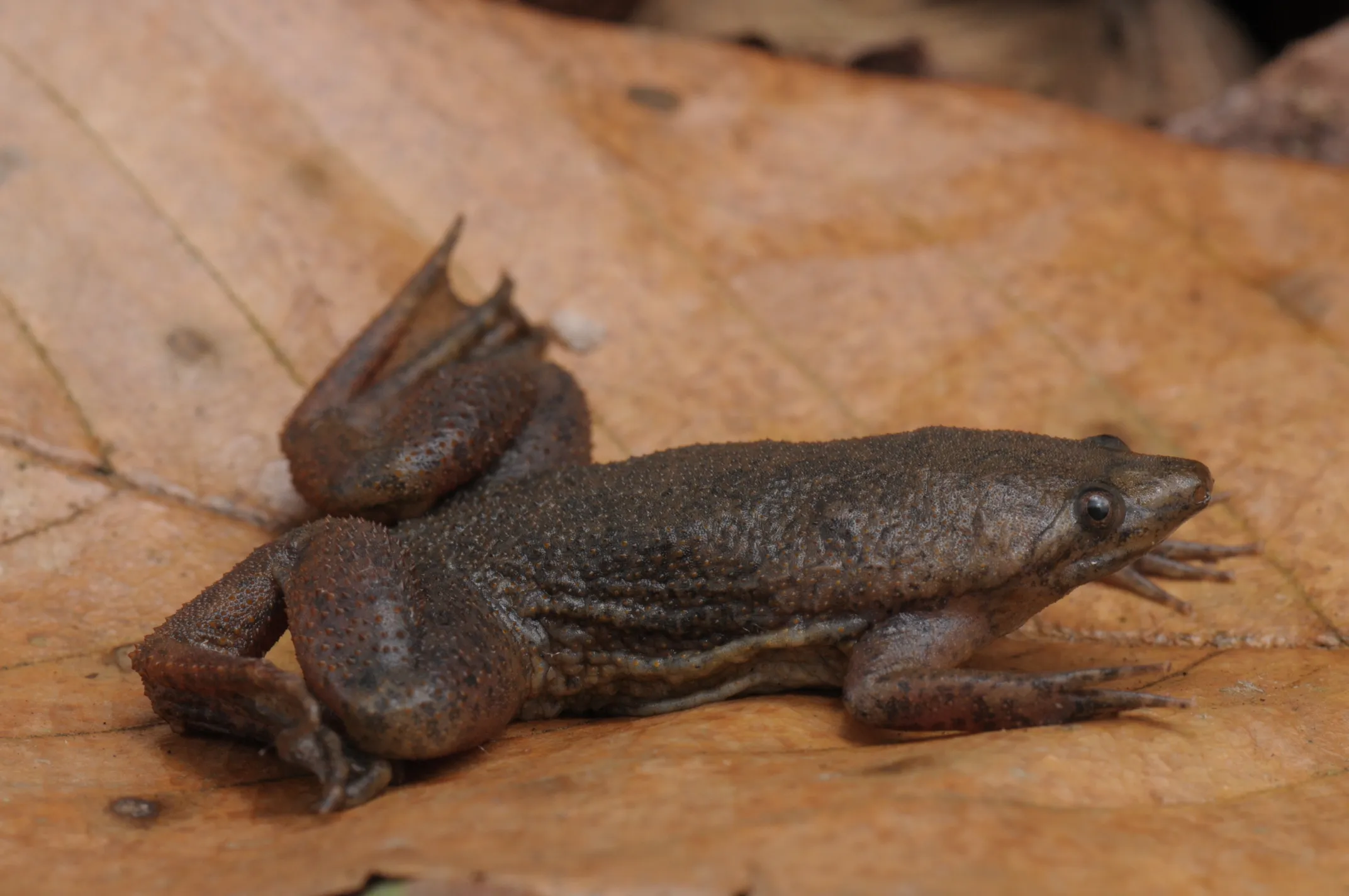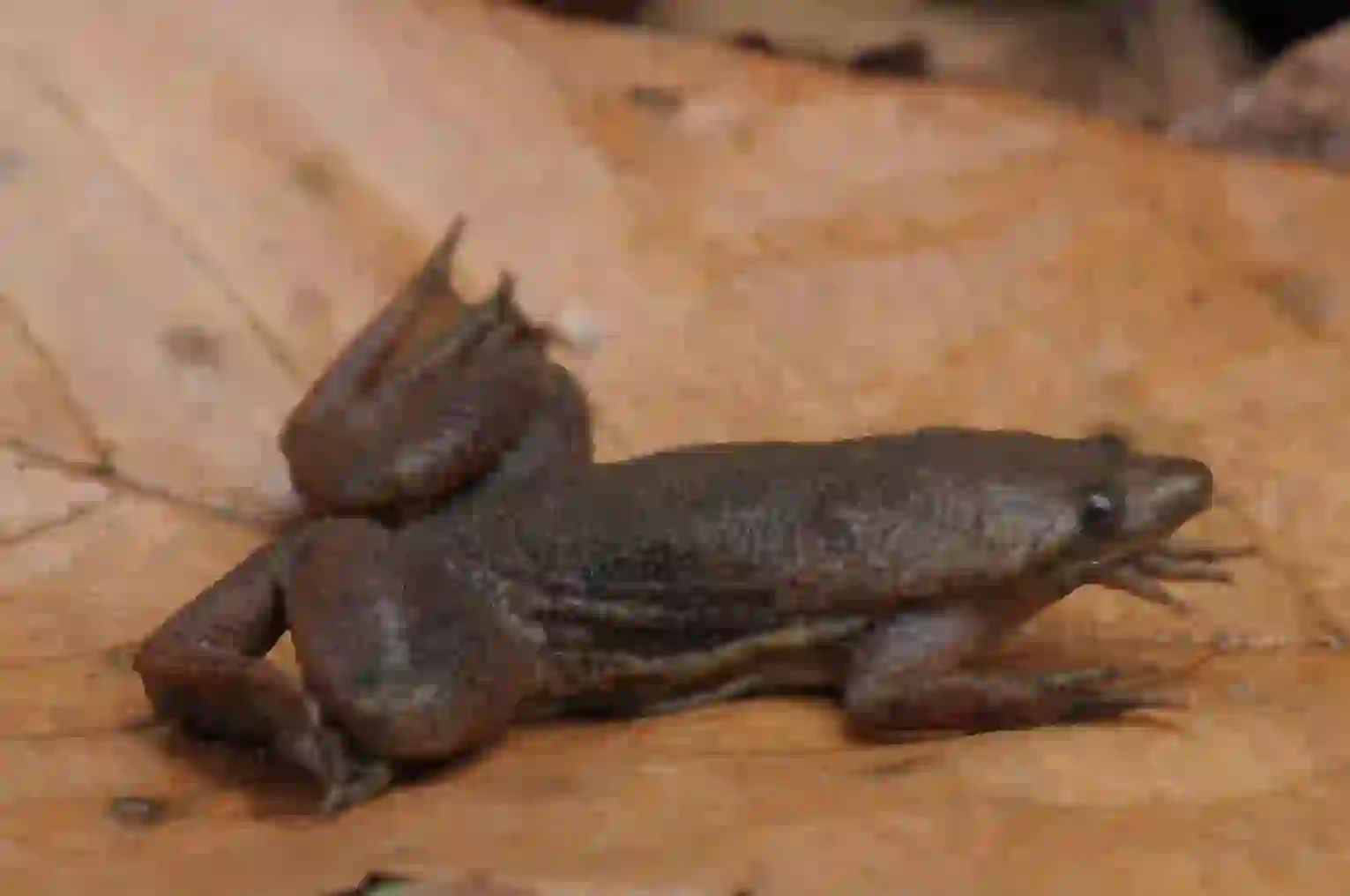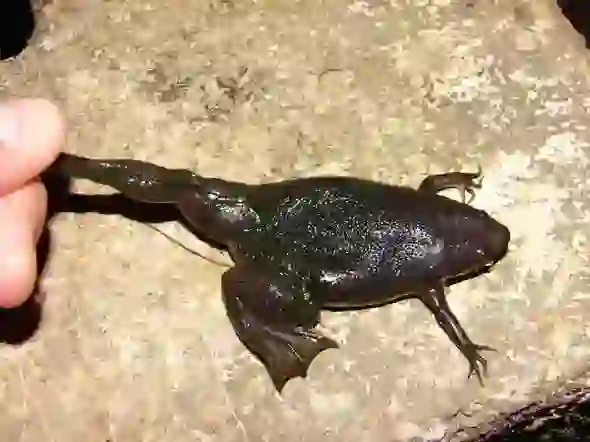
Carvalho's Surinam Toad
Carvalho's Surinam Toad
Carvalho's Surinam Toad
In the wetlands of South America resides the Carvalho's Surinam toad, a frog with a peculiar appearance. They have flat, leaf-like bodies, perfectly adapted for blending into the bottom of their aquatic homes. Their reproductive method is equally fascinating: they raise their eggs on their backs and give birth to live young! Let's explore the intriguing world of the Carvalho's Surinam toad!
Carvalho's Surinam Toad Basic Infomation

| Property | Value |
|---|---|
| Scientific Name | Pipa carvalhoi |
| Taxonomic Status | SPECIES |
| Rank | Species |
| Vernacular Names | Carvalho's Surinam toad, Carvalho's Surinam Toad |
| Kingdom | Animalia |
| Phylum | Chordata |
| Class | Amphibia |
| Order | Anura |
| Family | Pipidae |
| Genus | Pipa |

Carvalho's Surinam toad ( *Pipa carvalhoi* ) is a frog species belonging to the genus Pipa in the family Pipidae, found in northeastern South America (Brazil, Guyana, and Suriname).
They are about 4-5 cm long and, like other Surinam toads, have a very flattened body.
Their coloration is brownish-gray or gray, with mottled patterns that help them blend into their surroundings.
They are thought to mimic dead leaves on the water bottom.
Carvalho's Surinam Toad Q&A

What kind of frog is Carvalho's Surinam toad?
Carvalho's Surinam toad is a fully aquatic frog that inhabits the slow-moving waters of the Amazon River basin.
They spend their entire lives in water and do not come onto land.
Their flattened body is well-suited for hiding on the bottom, and their small eyes are located on the top of their head.
They also lack tongues.

How do Carvalho's Surinam toads breathe?
Like other Surinam toads, Carvalho's Surinam toads primarily breathe through their skin (cutaneous respiration).
Their skin is extremely thin, allowing blood vessels to be visible.
To enhance oxygen uptake from the water, they have folds of skin along the sides of their bodies to increase their surface area.

What do Carvalho's Surinam toads eat?
Carvalho's Surinam toads are carnivorous, feeding on aquatic insects, crustaceans, and small fish.
Since they lack tongues, they capture prey by suction, engulfing it with their wide-open mouths.
They have star-shaped sensory organs on their front toes that help them detect vibrations in the water and locate prey.

How do Carvalho's Surinam toads raise their young?
Carvalho's Surinam toads have a unique reproductive method, similar to other Surinam toads, where the female lays her eggs on the male's back, and he protects them until they hatch.
The eggs are embedded in the female's back skin, where they develop.
When they are ready to hatch, fully formed froglets emerge from the female's back.

Are Carvalho's Surinam toads endangered?
Carvalho's Surinam toads are facing population decline due to habitat loss and pollution, and are listed as Near Threatened (NT) on the IUCN Red List.
Their habitat in the Amazon River basin is being destroyed by development and deforestation.
Water pollution is also a growing threat.
Protecting their habitat is crucial for the conservation of Carvalho's Surinam toads.

Would you like to become a part of the 'Animalbook.jp'?
Turn your knowledge into Q&A and share it with the world. ※Publication will be activated after purchase. Let's share information together!
Carvalho's Surinam Toad Type of List

- Carvalho's Surinam Toad
Information
Congratulations! You are the first commenter!

Create Your Favorite List!
Carvalho's Surinam Toad
Save the animals you love! Build your own list to quickly revisit your favorites later.

Would you like to leave a comment?
※Please note: This is for the purchase of rights to post comments within the article.
Find Your Favorites!
Our shop offers a unique and attractive selection of goods themed around various animals.
Carvalho's Surinam Toad References
Carvalho's Surinam Toad Introduction of media used

Renato Augusto Martins, CC BY-SA 4.0, via Wikimedia Commons

Lucas Grandinetti, CC BY-SA 2.5, via Wikimedia Commons

Help Enrich Our Animalbook.jp with Your Media!
We are constantly looking to expand and enrich our Animalbook.jp with amazing photos and videos of animals. If you have any media that you'd like to share, please contribute and help us showcase the beauty and diversity of the animal kingdom. Your submissions will be credited and featured in our encyclopedia, reaching a wide audience of animal lovers.


















